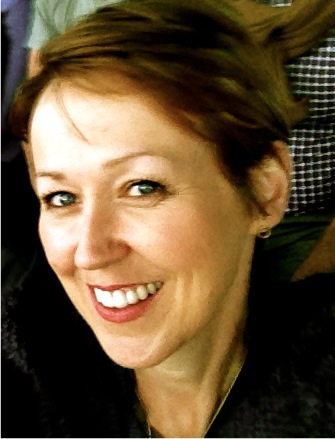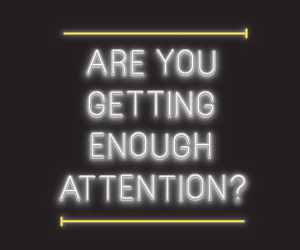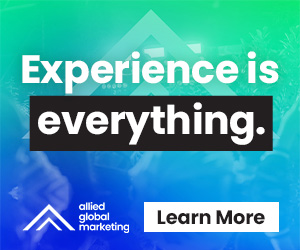 With agencies now moving to bring digital and other disciplines back in-house, the advertising industry has gone full circle again. So when it comes to appointing an agency with digital skills what should marketers look for asks Una Herlihy?
With agencies now moving to bring digital and other disciplines back in-house, the advertising industry has gone full circle again. So when it comes to appointing an agency with digital skills what should marketers look for asks Una Herlihy?

I started working in advertising in the 1990s when the agency was a one-stop shop for a client’s full advertising requirements. As we moved towards Y2K, the agency world had started to fragment and specialize. We saw new agencies spring up offering deep specialism in specific areas. Clients then had more choice but also had more relationships to manage which in itself was massively challenging.
At the same time the digital media and social networking outliers were taking their first steps to driving the omnipresent cultural phenomenon we know and love today. Now, 20 years on we are almost coming full circle again, albeit with different drivers in play. The agency world has responded by engaging in massive consolidation (certainly in the networked shops), re-appraisal and restructuring in a move to once again offer the client a broader range of specialisms under one roof. The challenge is how to keep on top of that in a fast moving and constantly changing media and consumer environment.
For any brand the fact is that everything communicates in our “always on” consumer environment. So when we consider how to go about appointing a digital agency we acknowledge the lines between digital comms and traditional comms have faded and with that in mind the principles and criteria used for selecting a digital agency are broadly speaking the same as the criteria used to select and appoint a full service agency.
Today, digital is an inherent part of the customer experience or journey and as a result it needs to be a fundamental part of the full service offering. Now, there are obviously certain technical competencies that need to be in place for a client who will be investing a large proportion of their marketing spend online and as such this needs to be explored and evaluated as part of a selection process. But when you are making a decision about what agency is best suited to your needs – be it above the line, through the line or Digital only – there are general principles that apply in all cases and when applied can be the difference between a long term mutually beneficial relationship and a torturous union where no one is happy.
Like death and taxes, it’s pretty much a certainty that at some stage in a brand marketer’s career they will need to appoint an agency to enhance their brand, launch a new product, acquire new customers or retain the ones that have. Brands can succeed or fail on the outputs of an agency and yet sometimes the process of selecting a partner is neglected. Appointing the wrong agency is one of the best ways to scupper a career so it is in a client’s best interest to make sure the decision they are making is the best for their brand, their business and themselves. So how do you know you are making the right decision or if you have the right people at the table?
The truth is that there are many different approaches. Today, a growing number of brands turn to intermediaries or to their own procurement departments to select the most appropriate agency partners. For others, the search can be less formal. We are fortunate that we operate in a tightly knit marketplace where CMOs regularly get the opportunity to network with their peers and discuss their learnings as well as sharing their experiences of working with different agencies. It is often on the basis of these conversations that agencies’ phones start to ring…or not. However, before starting any search in earnest, I believe the first step is for clients to really land on what role they want the agency to play in the future fortunes of their brand and their business. Being clear about the goals from the outset and the problems they are bringing the agency in to address will help them to determine what kind of relationship they want to have and as a result who might be the right people to start a conversation with.
So, here is my opinion on how to get started on that.
Who is the agency currently working for?
It’s a pretty obvious and common sense approach that one of the best indicators of an agency’s capabilities is seen in the work they do for other clients. Pitching can be a somewhat limiting way to assess an agency’s skills and fit. How many times have we heard it referred to as a ‘beauty parade’? It’s unrealistic to expect an agency to get the answer right on pitch day because the RFP process only allows for very restricted access to the client team and virtually no collaboration along the way. We know that this is not how the best ideas are developed. We know that the ideas that grow brands and business come from creating the conditions for creative thinking to take place. This comes from a culture of partnership and collective endeavor. Pitching at a most basic level is more like pinning the tail on the donkey, hoping to God you are close to a workable solution but not ever being sure the Client will buy it. So, looking at what is going on in the market, keeping an eye out for great work and taking the time to find out who is behind it is possibly a better way to assess how good an agency is in reality.
What are the Agency’s capabilities?
Again, it’s an obvious enough question but in the throws of a selection process a client must seek comfort about the agency’s bandwidth and needs to explore if they have the capabilities to deliver on all the identified requirements. For example, will they need to seek or invest in new people, skills or tools or will they outsource to other agencies or companies?
Resist the urge to give in to the seduction tactics
We’ve all been there on pitch day: the client arrives hoping to be wowed with fantastic ideas. The agency fronts up with the senior team and makes their case as to why their ideas will move mountains. When the thinking is great and the ideas that result from that are exciting, everyone feels like this is the start of something wonderful. And it can be. However, accounts are lost and clients are disappointed when the ways of working are inefficient and consistently below par. We recommend that clients should go through a very detailed process of ticking all the boxes from the people to their ways of working and how they will charge you for their service. This can be tricky, time-consuming and complicated but if done properly will build trust from the get-go and set expectations for high performance.
Commit to the process
One thing marketing executives may overlook prior to hiring an agency is evaluating and scheduling time for their own commitment to the process. If there is support and buy in from the top executives then the process should work. Making it known within the organization that the process is a top priority makes a huge difference in results. It’s very motivating for the agency as it points to the level of importance the organization places on creativity and innovation. Keeping appointments with the agency, being open, accessible and responsive with information means a lot and improves the agency’s ability to deliver a high quality response on pitch day.
Who will work on your business?
All too often agencies arrive in with the senior team, land the business on the basis of these people and then they disappear only to work on the next big pitch. Knowing, respecting and liking the people who will be working on your business day-to day is absolutely critical for the success of the relationship so make sure you know who your team is and get solid references from other clients to give you peace of mind that the decision you are making is something that you can stand over.
Culture fit
When we talk about culture fit it’s important to state that it’s not just about team chemistry: it goes deeper than that. Misaligned cultures can lead to inefficient work practices not to mention the impact that has on relationships. So, it’s important to understand if your own culture and the agency’s cultures, values and work practices are similar and/or complimentary?
Moving on to Media
Digital agencies are as varied as the needs of the marketers who hire them. At the top of the food chain are the agency holding companies with hundreds of full-service digital agencies around the world. Then there are the boutique and specialty agencies that provide channel-specific digital marketing services such as social media marketing, content management or SEO. Finally, there are agencies that focus on strategy and professional services, such as branding or web design.
Like any organisation, each type of agency has its own strengths, weaknesses and culture and can be differentiated by their focus on professional services versus proprietary technology platforms. Agencies that emphasise their professional services capabilities then to recommend and use third-party technology such as PPC campaign management platforms, SEO tools, and social media management platforms to manage their clients’ data and digital campaigns. These agencies view their role as strategists that can analyse and interpret data to provide actionable results and achieve their clients’ goals.
Agencies that develop and offer proprietary tools view their platforms as a competitive advantage over third-party models that are widely available. The plethora of digital channels has left many advertisers drowning in data. By providing technology platforms that are built and customised to client needs, these agencies believe they are providing unique and critical automation tools that collect, analyse, and optimise data for their clients.
So whether it’s developing content, developing technology and experiential digital solutions, managing search campaigns, website optimisation, social media community management, data science services, emarketing or just buying digital media ad space there is are many agency providers out there. These may be part of a full service media solution or a specialised digital business. Which is best for you? We go back to the start: what do you need, what can you manage and therefore what are you looking for?
Una Herlihy is a partner Open Communications. Mark Lynch, a partner with Open Communications was also a contributor to this article.
First published in Irish Marketing Journal (December 2015)© to order back issues please call 016611660





















